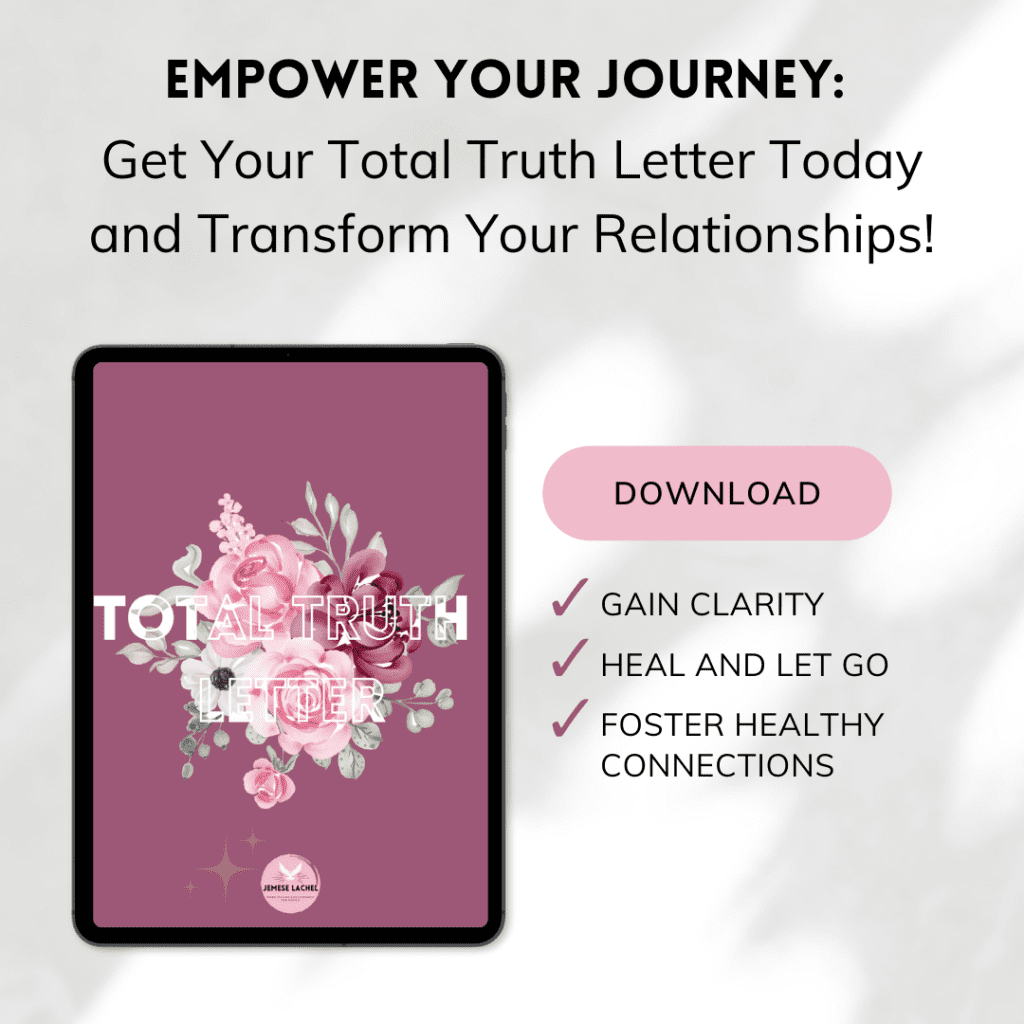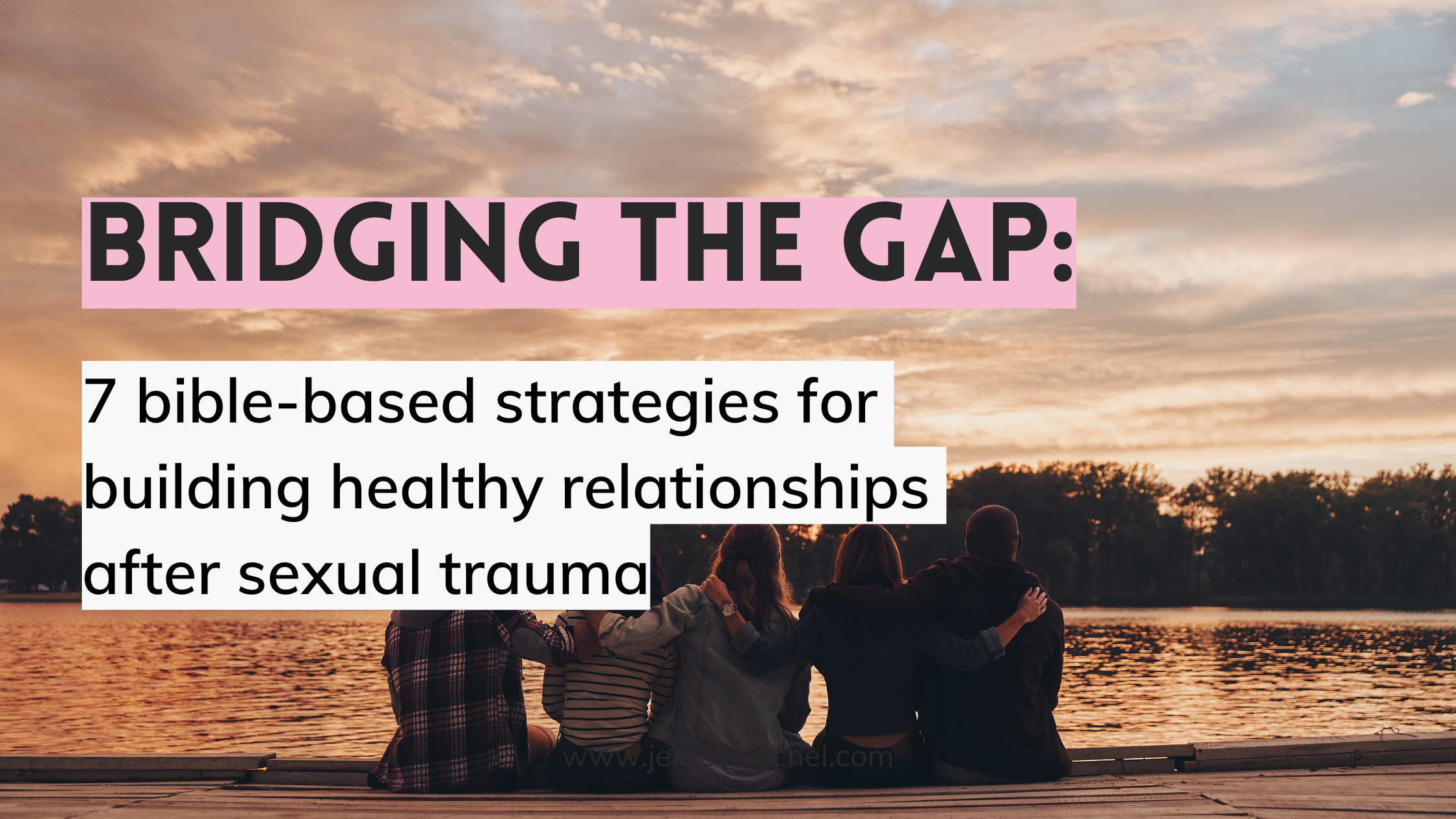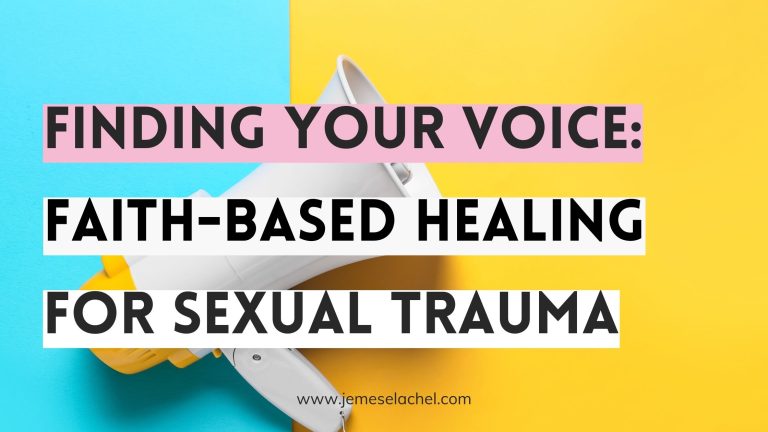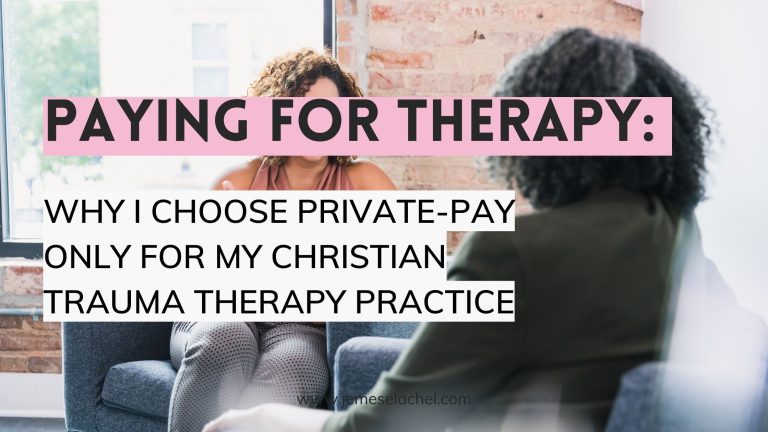 Introduction:
Introduction:
Building healthy relationships after trauma can be tough. Trauma wounds can leave lasting scars that profoundly affect our ability to form meaningful relationships. Even when we appear to have moved on successfully, unaddressed trauma can secretly undermine our connections with others. This is especially prevalent among women who have survived sexual abuse, as trauma often revolves around feelings of safety, protection, and a fear of being hurt again. However, as Christians, we understand that true safety and security come from God, and He can help us overcome these barriers and build healthy relationships.
In this blog post, we will explore specific strategies you can apply today to cultivate healthy relationships. You’ll learn tips so you can foster growth, trust, and joy from the very beginning.

Strategies for Building Healthy Relationships
1. Seek Guidance from God:
Proverbs 3:5-6 reminds us to trust in the Lord and not rely on our own understanding. So, the first step in generating healthy relationships after trauma is seeking His guidance. Surrender your desires and plans to Him, allowing His wisdom to direct your steps. Spend time in prayer, seeking discernment and clarity about the type of relationships God wants for you.
2. Believe that it’s possible
Our automatic thoughts often uphold certain ideals, even if they aren’t always true. That’s why I encourage clients in my practice to practice critical thinking, evaluating their thoughts and capturing each one. If you believe lies like “all men are abusers,” “everybody always hurts me,” or “I missed it, I’ll never get married,” it’s time to get real with God and pray. Ask Him to renew your mind and replace your thoughts with His thoughts toward you and the situation. Believe that healthy relationships are possible.
3. Remember the Greatest Command
(and the second, which is like it):
In Matthew 22:37, we are called to wholeheartedly love God and make Him our top priority. By centering our lives around God, we find healing, strength, and the foundation for healthy relationships. The commandment to “Love your neighbor as yourself” flows from this, emphasizing the importance of love and respect in fostering safe and fulfilling connections. While forgiveness can be a complex process, the Bible encourages us to forgive and entrust justice to God. With empathy, self-care, and support from others, we can experience healing and restoration in our relationships.

4. Practice Effective Communication:
Effective communication serves as the lifeblood that sustains connection and understanding in relationships. However, for trauma survivors, honing communication skills can be particularly challenging. You may find yourself subconsciously pushing people away or struggling with trust due to learned behaviors for self-protection. But take heart, with God’s help, you can overcome these obstacles. The Bible offers guidance on how to communicate effectively. Ephesians 4:29 encourages us to use our words to uplift and extend grace to others. By approaching your interactions with grace, kindness, and respect, you create an atmosphere of growth and understanding.
5. Seek Accountability and Encouragement:
Proverbs 27:17 reminds us of the positive impact that iron sharpening iron can have, emphasizing the need to surround ourselves with fellow believers who can hold us accountable and provide support. Additionally, considering the concept of Titus 2 woman mentorship and discipleship can provide valuable guidance and wisdom in building and nurturing relationships. By actively seeking accountability and mentorship, we can foster growth, gain insights, and deepen our faith as we strive for healthier and more fulfilling connections with others.

6. Pursue Emotional and Spiritual Alignment:
Emotional and spiritual alignment are key aspects of healthy relationships. Look for individuals who can support and encourage you emotionally and spiritually. Seek someone who shares your faith and commitment to a Christ-centered life. Together, you can grow spiritually, seeking God’s guidance as you navigate the joys and challenges of life.
7. Trust in God’s Timing for Building Healthy Relationships after Trauma: :
Ecclesiastes 3:1 reminds us that there is a season for everything. It might take a minute for you to develop the relationships you’re looking for. God might intnetinlay put you in a season that looks like wilderness, but it’s really just Him sanctifying you unto Himself so you can get full on Him before He releases you to be poured into by other people. Trust in God’s timing for your relationships, being patient and allowing Him to work in His perfect plan. Avoid rushing into relationships and instead seek His guidance and timing.
Conclusion:
Generating healthy relationships requires intentionality, self-awareness, and adherence to Christian principles. By seeking God’s guidance, cultivating a relationship with yourself, practicing authenticity and vulnerability, prioritizing effective communication, emphasizing compatibility and shared values, and pursuing emotional and spiritual alignment, you can precisely generate healthy relationships from the start. Trust in God’s perfect plan for your relational journey and embrace the joy and fulfillment that come from nurturing connections that honor Him.
 Do you need help getting started?
Do you need help getting started?
To support your journey in fostering healthier connections, I encourage you to try the Total Truth Letter. This free journal prompt is designed to help you explore and heal from specific relationships that have caused distress or held you back. I Access the Total Truth Letter and embark on a transformative path towards healthier connections by clicking here: jemeselachel.com/resources/total-truth-letter
 Jemese LaChel is a Christian Trauma Therapist and empowering voice for women seeking to cultivate healthy relationships and live a fulfilling life. She combines personal experiences, biblical wisdom, and practical insights to guide women on their journey towards healing, growth, and thriving relationships. With a deep understanding of the challenges women face, especially those who have experienced trauma, Jemese offers support, encouragement, and actionable strategies to help women overcome obstacles and embrace the love, joy, and freedom that God intends for them. If you’re ready to step into a life of purpose, connection, and transformation, follow Jemese’s work on Instagram @jemeselachel.
Jemese LaChel is a Christian Trauma Therapist and empowering voice for women seeking to cultivate healthy relationships and live a fulfilling life. She combines personal experiences, biblical wisdom, and practical insights to guide women on their journey towards healing, growth, and thriving relationships. With a deep understanding of the challenges women face, especially those who have experienced trauma, Jemese offers support, encouragement, and actionable strategies to help women overcome obstacles and embrace the love, joy, and freedom that God intends for them. If you’re ready to step into a life of purpose, connection, and transformation, follow Jemese’s work on Instagram @jemeselachel.







